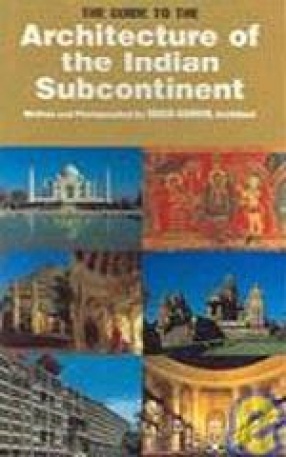It is a fact that, even in the field of architecture, architects who have a very deep understanding of American architecture know almost next to nothing about Indian architecture or traditional Islamic architecture. Everybody knows that a well-developed civilization flourished in India and China from ancient times and that through Buddhism India made a great impact on Japan too. But if asked what comes to mind about the architecture of India from ancient times to the present day, there are not many who can even conjure up an image.This book tries to narrow this gap by introducing architecture of the Indian subcontinent including Bangladesh in great detail. This area has a great architectural culture that is richly different from that in Japan, Europe and America.One must remember that India (unlike China) has rarely been a centrally ruled country. Moreover she has many religions and cultures co-existing and often in competition. It is this plurality, which greatly contributes to the excellence and variety on display. But there is also the genius of the Indian Master Builder whose approach to design was different. Unlike the Western architect who approached the subject from a total conception and moved down to the details, the Indian temple designer moved from both ends, simultaneously. The details playing a major role, affected the final outcome in a most startling way, creating monuments of great beauty and uniqueness.Strangely enough the greatest flowering of Islamic Architecture is in India. Though their main thrust was Islamic, they evolved in a completely different way from their place of origin as they were interwoven with local Hindu traditions of the time. It is these qualities which lured Takeo Kamiya to return each year over a 26-year period to complete this greatdocumentation.All in all this book introduces Indian architecture through the ages, from ancient times to the present, with Islamic architecture and Colonial style architecture during the British rule also included. It is usual for these kinds of books to include only one photograph of the exterior of the building. This book has more pictures of important buildings, of their details and interiors, and along with the explanations and illustrations bring about a better sense of belonging. With 1800 photographs and 300 maps and illustrations, and notes and characters the book ran into over 500 pages.
Goa
$12.60
$14.00






There are no reviews yet.